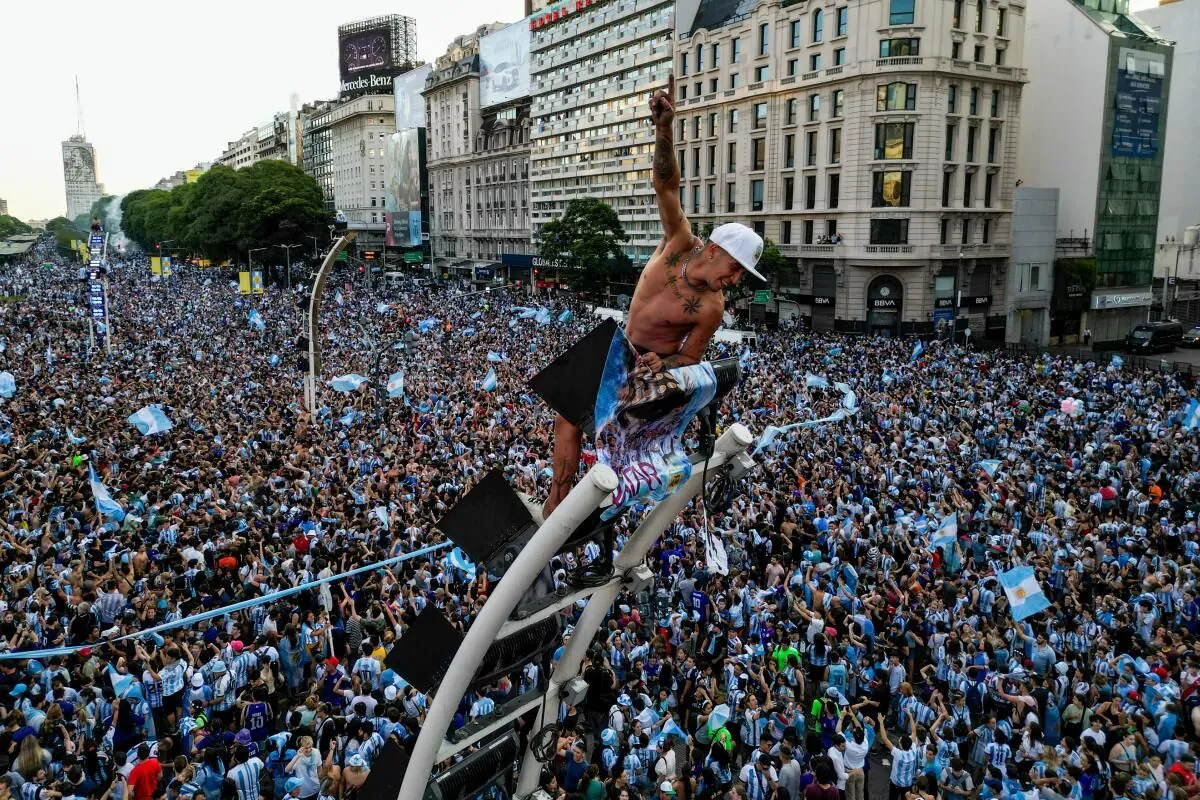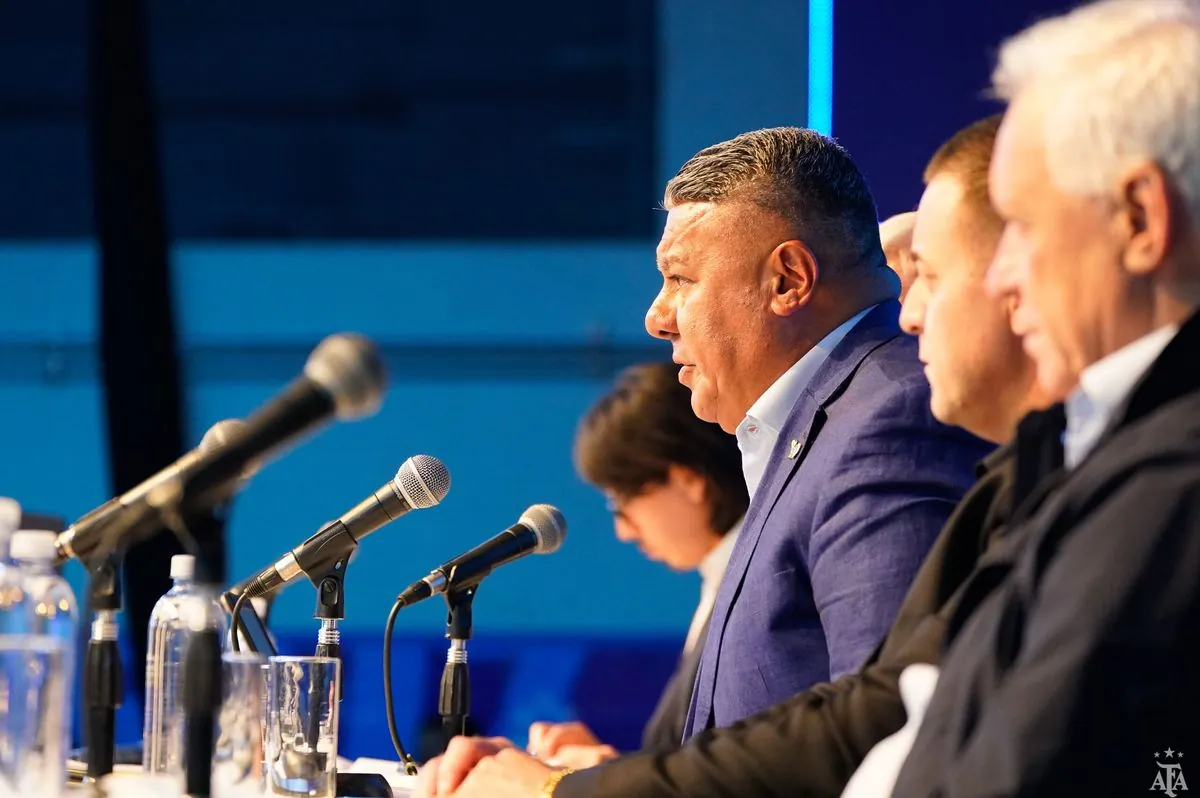Argentina's Soccer Revolution: Milei's Privatization Push Faces Fierce Opposition
President Javier Milei's plan to allow private ownership of Argentine soccer clubs sparks controversy. Supporters see economic potential, while critics fear loss of community values in a sport deeply rooted in national culture.

In Argentina, soccer is more than just a sport—it's a way of life. For Mariano Dalesio, a 29-year-old member of River Plate, one of Argentina's top clubs, the stadium is his second home. However, Dalesio and many others are now concerned about President Javier Milei's vision to revolutionize Argentine soccer.
Milei, a former goalkeeper turned libertarian leader, is pushing for a significant change in how soccer clubs operate. His plan involves allowing clubs to become for-profit entities, a stark departure from their traditional non-profit status. This move, he argues, could attract private investment and boost revenue in a sector he sees as untapped.
In August 2024, Milei issued a decree giving the Argentine Football Association (AFA) one year to adjust its statutes and permit for-profit clubs. This follows his earlier attempts in December 2023 to introduce similar measures.
However, the president's plans have met with strong resistance. Many AFA clubs have vocally rejected the idea of private ownership. Critics worry that profit-driven owners might prioritize financial gains over the clubs' social missions, which often include community services and youth development programs.

Argentina's soccer history is deeply intertwined with its cultural and political fabric. The sport was introduced by British immigrants in the 19th century, with the first recorded match played in Buenos Aires in 1867. By the early 1900s, soccer had become the national pastime, giving birth to a unique Argentine style focused on dribbling skills and passionate play.
"Soccer had long since ceased to be the preserve of British expats."
Throughout Argentina's history, soccer has been closely linked to politics. From Juan Perón's government in the 1940s and 1950s supporting stadium construction to the military junta using the 1978 World Cup to improve its global image, the sport has often been a tool for political maneuvering.
In recent years, Argentine clubs have faced economic challenges amidst the country's ongoing financial crises. Despite the national team's success, including World Cup victories in 1978, 1986, and 2022, and 15 Copa América titles, domestic clubs struggle to compete with markets like Brazil in retaining top talent.
Milei's privatization push aligns with his broader free-market approach. Some, like retired star player Sergio Agüero, see potential benefits in private ownership. However, many fans and club members remain skeptical.
The debate in Argentina reflects a broader trend in Latin American soccer. Brazil passed legislation in 2021 to encourage for-profit clubs, while Uruguay already permits such ownership structures. However, the unique cultural significance of soccer in Argentina and the strong opposition from fans present significant hurdles to Milei's plans.
As the debate continues, the future of Argentine soccer hangs in the balance. With over 3,300 clubs registered with the AFA and a rich history that has produced legends like Lionel Messi and Diego Maradona, the outcome of this controversy will shape not just the sport, but a fundamental aspect of Argentine culture for years to come.


































